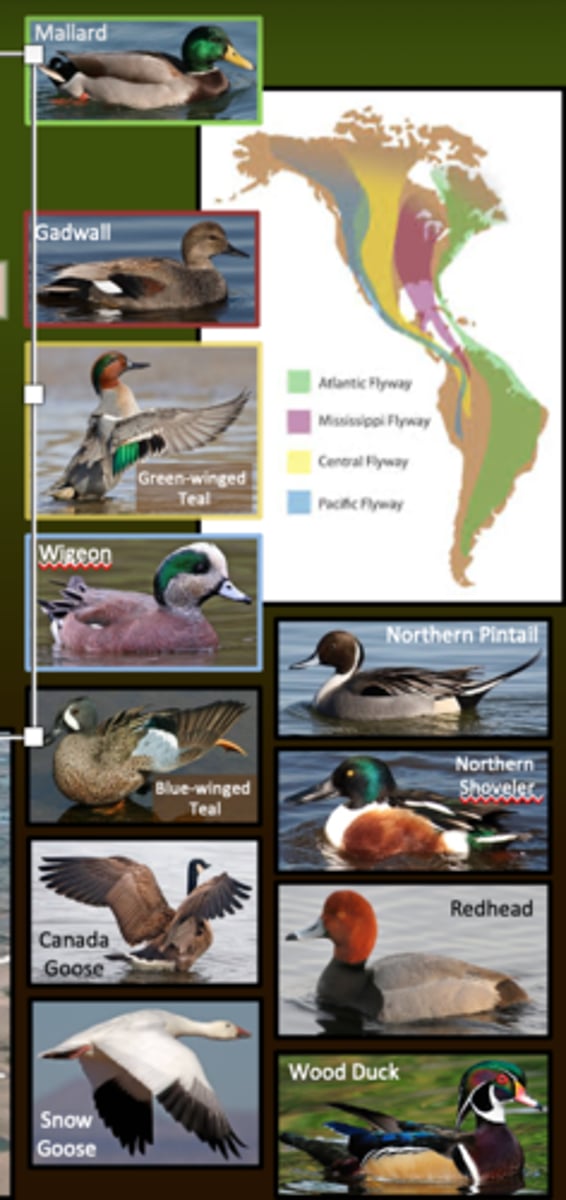Rnr Grasslands
1/64
There's no tags or description
Looks like no tags are added yet.
Name | Mastery | Learn | Test | Matching | Spaced | Call with Kai |
|---|
No analytics yet
Send a link to your students to track their progress
65 Terms
Adaptive Harvest Management
annual process of data collection, analyses, and rule-making;
ex. Flyway Councils and USFWS Migratory Bird Program
Flyway Councils
(state and provincial members) recommend harvest levels to the USFWS based on duck population status (aerial surveys), harvest, and hunter participation data (questionnaires), when approved, sent to states to determine bag limits
Allelopathy
The production of chemicals by plants that inhibit the growth of neighboring plants in an effort to outcompete them
Allelochemicals
provide a defense against herbivores and are also released into the soil to inhibit competing vegetation and increase light, nutrient, and water availability.
Biotic Soil Crust
lichen, algae, moss, anf fungi, bacteria, and cyanobacteria
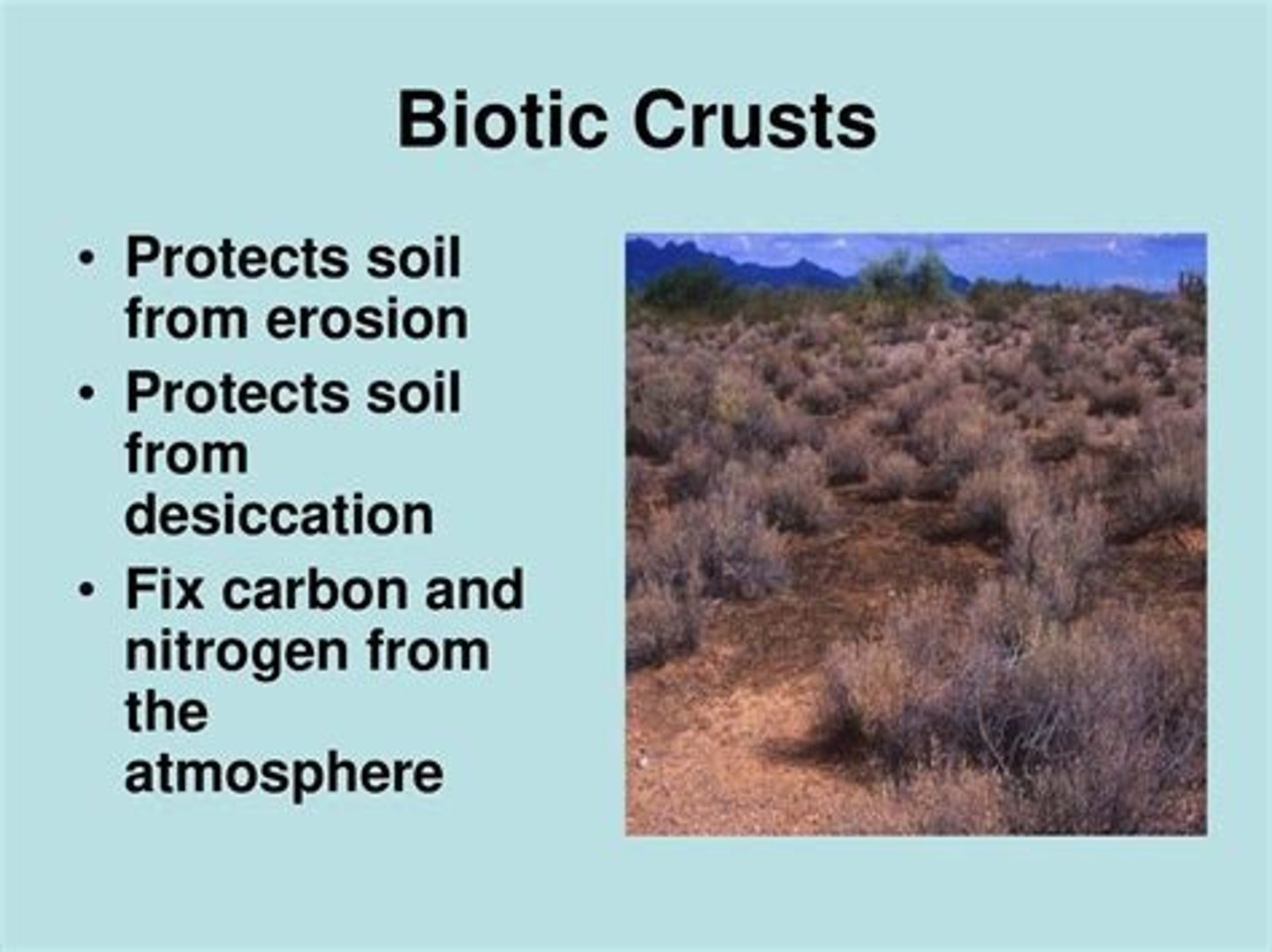
Blue Gram and Buffalo Grass
dominant “bunchgrasses” in short-grass prairies that was demolished by the Homestead Act in 1862. Usually located in mid-continental U.S. that is more adapted to drought and little rainfall.
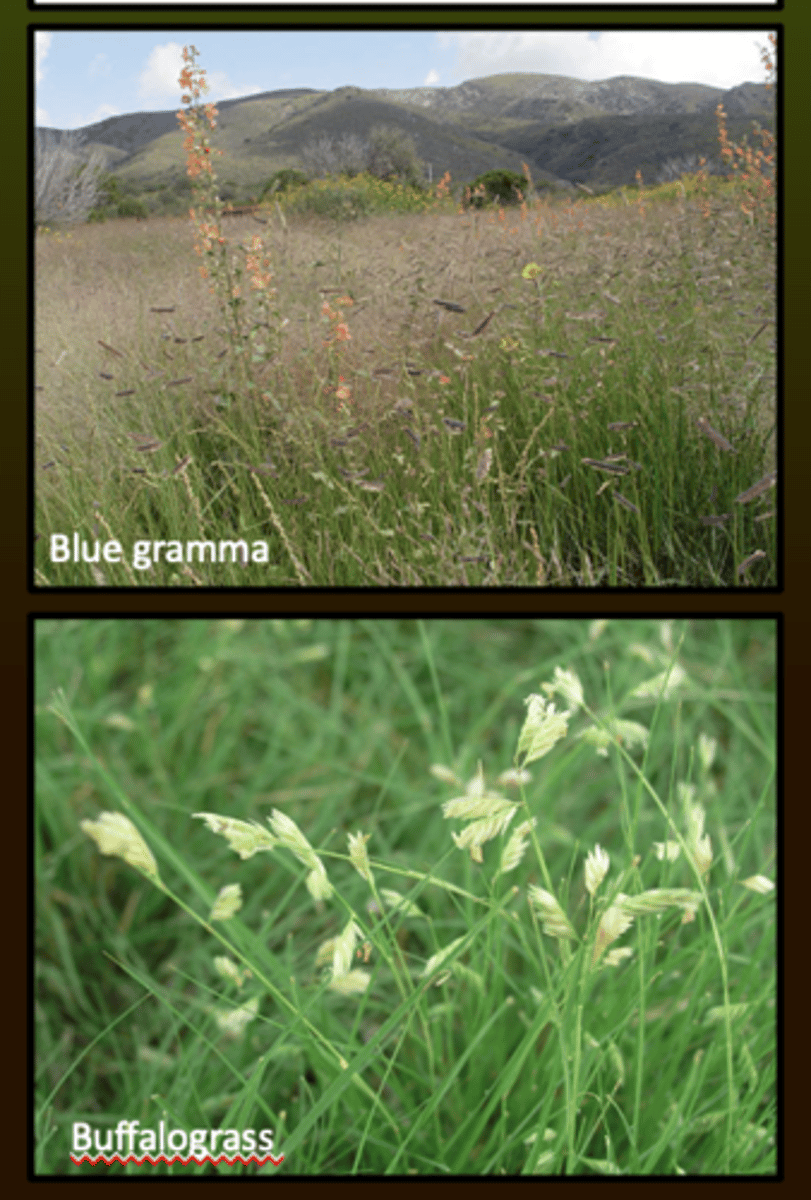
Brood Parasitism
organisms that rely on others to raise their young
- the brown headed cowbird
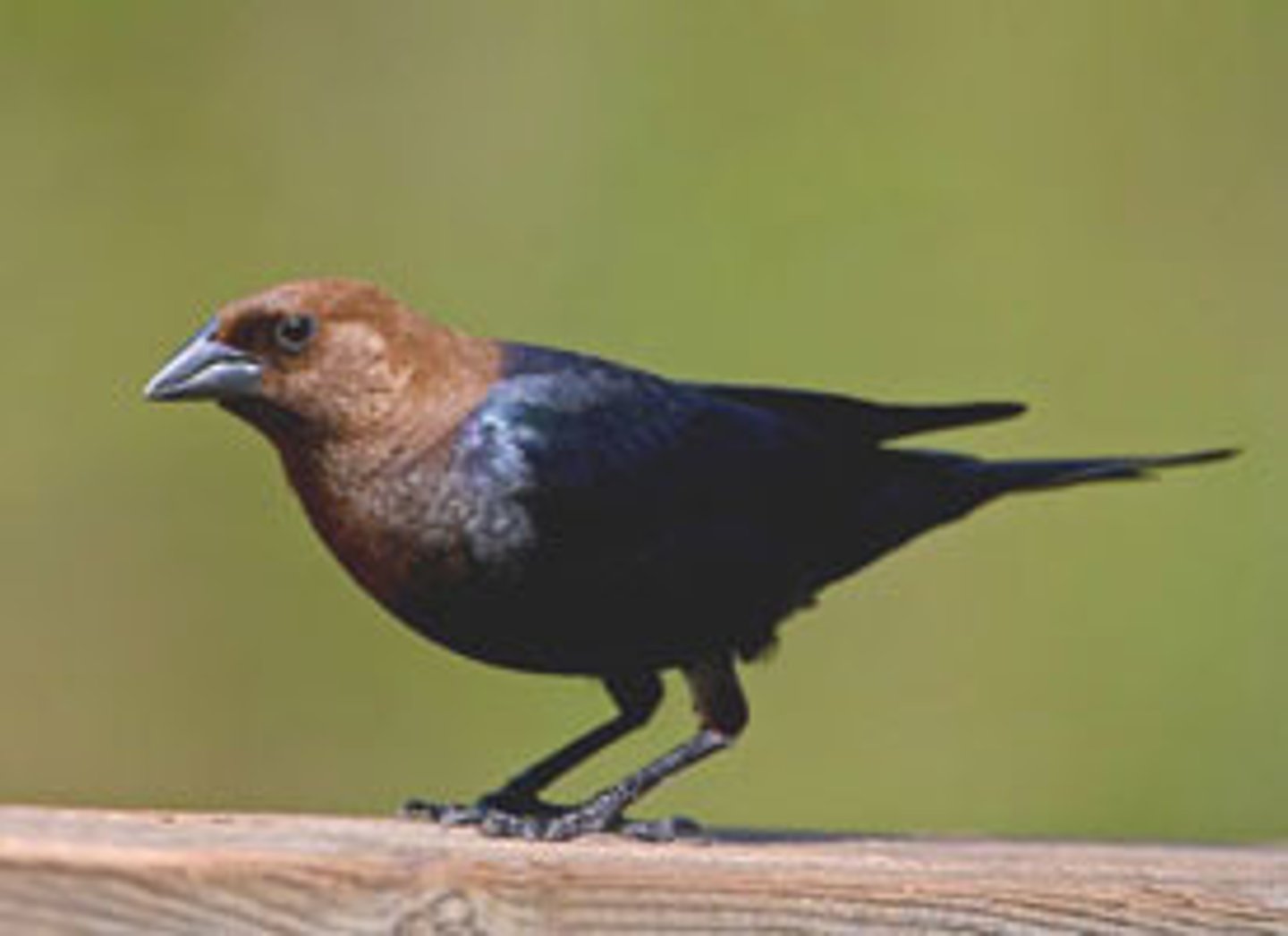
Cheat Grass
aggressive grass from southeastern Asia in the 1890's, prolific seed producer, able to germinate in autumn or spring, greater root production than native grasses, lower N requirements, tolerant of grazing and frequent fire; good forage
Developed by Design
Nature Conservancy mitigation hierarchy:
. avoid
. minimize
. restore
. offset
Decreasers
a plant species that gradually disappears due to continual grazing because it is preferred forage
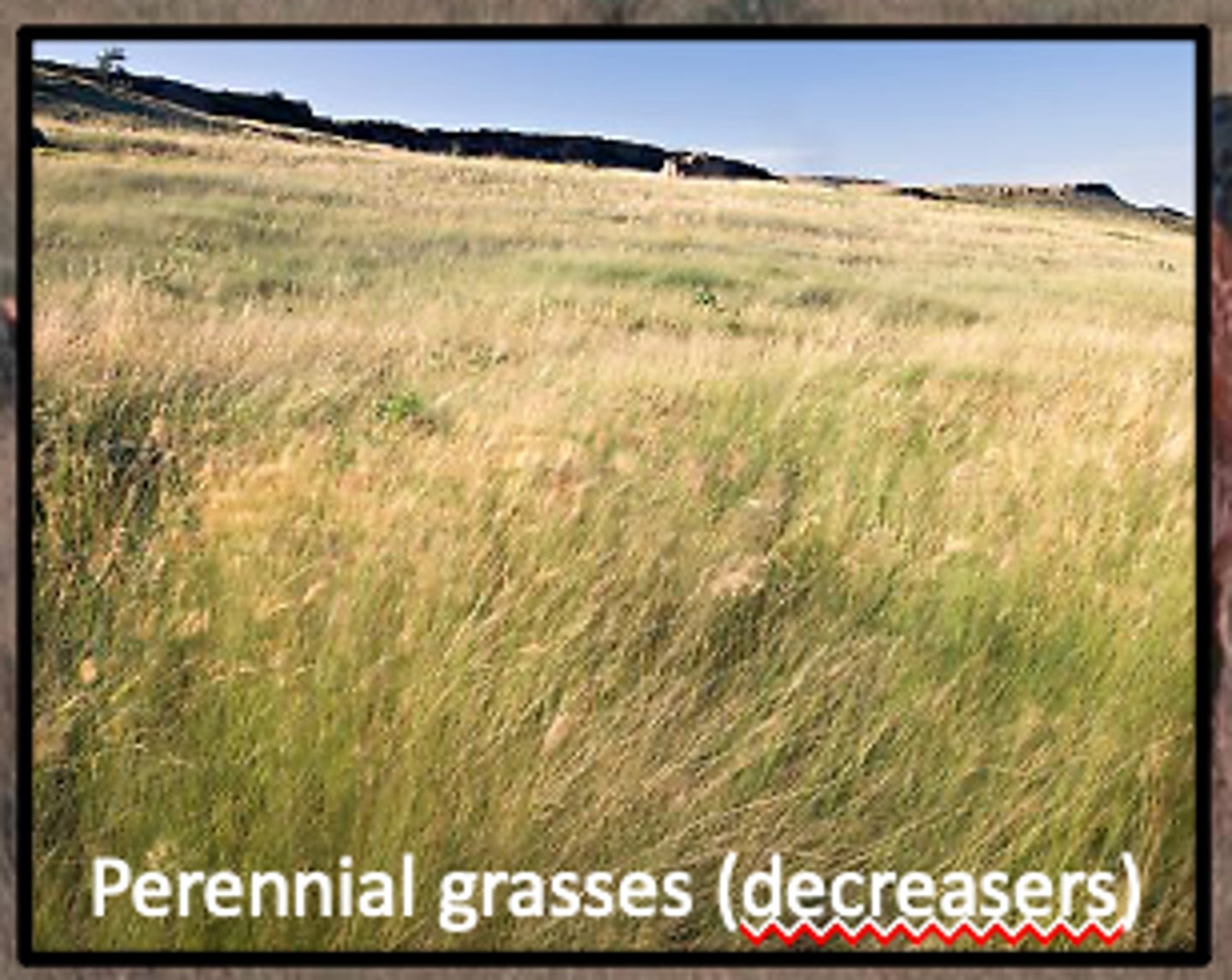
Increasers
increase when decreasers are over grazed, less palatable than decreasers
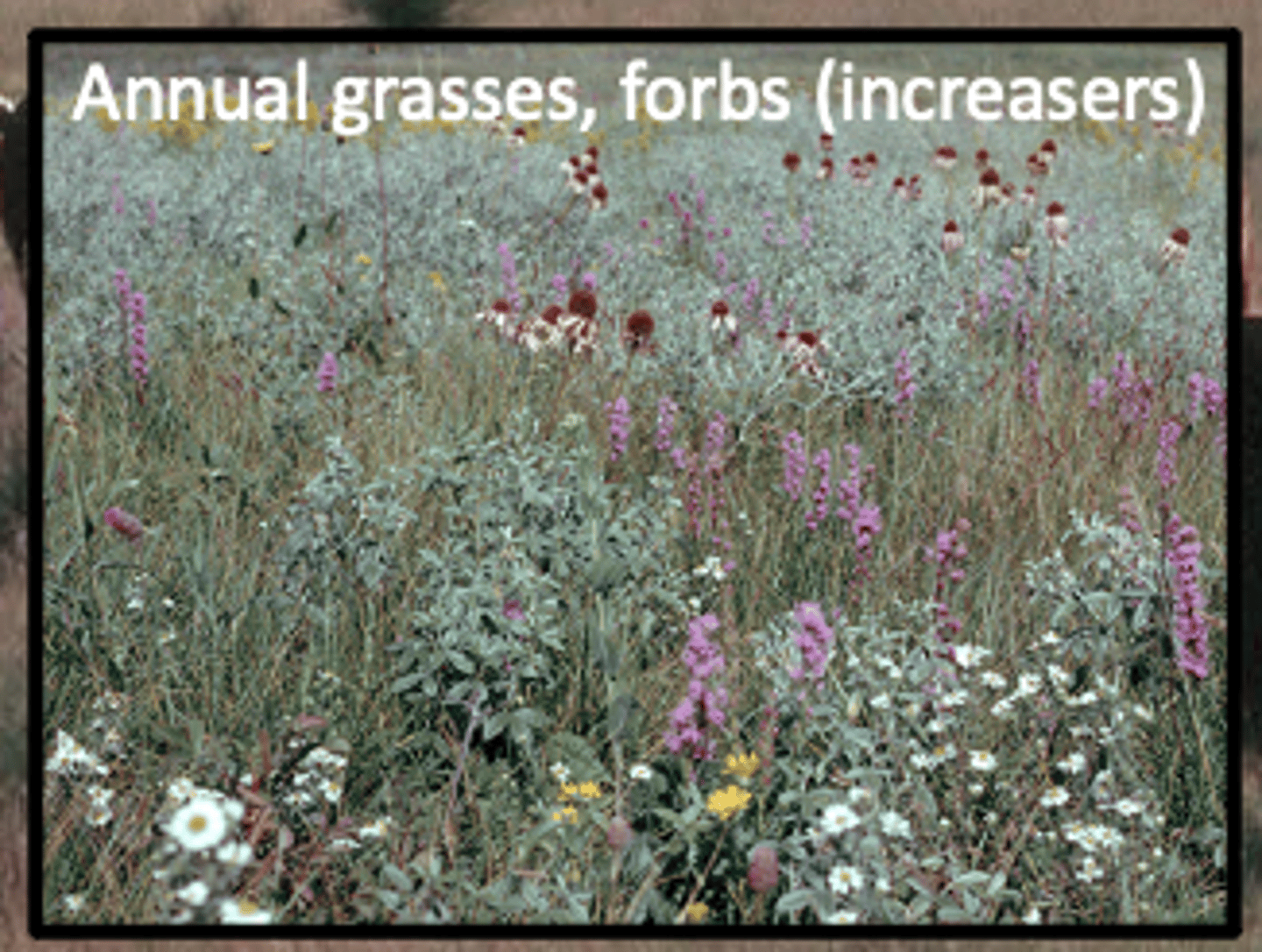
Invaders
grasses that are extremely invasive in a non-native ecosystem because they are UNpalatable to native grazers
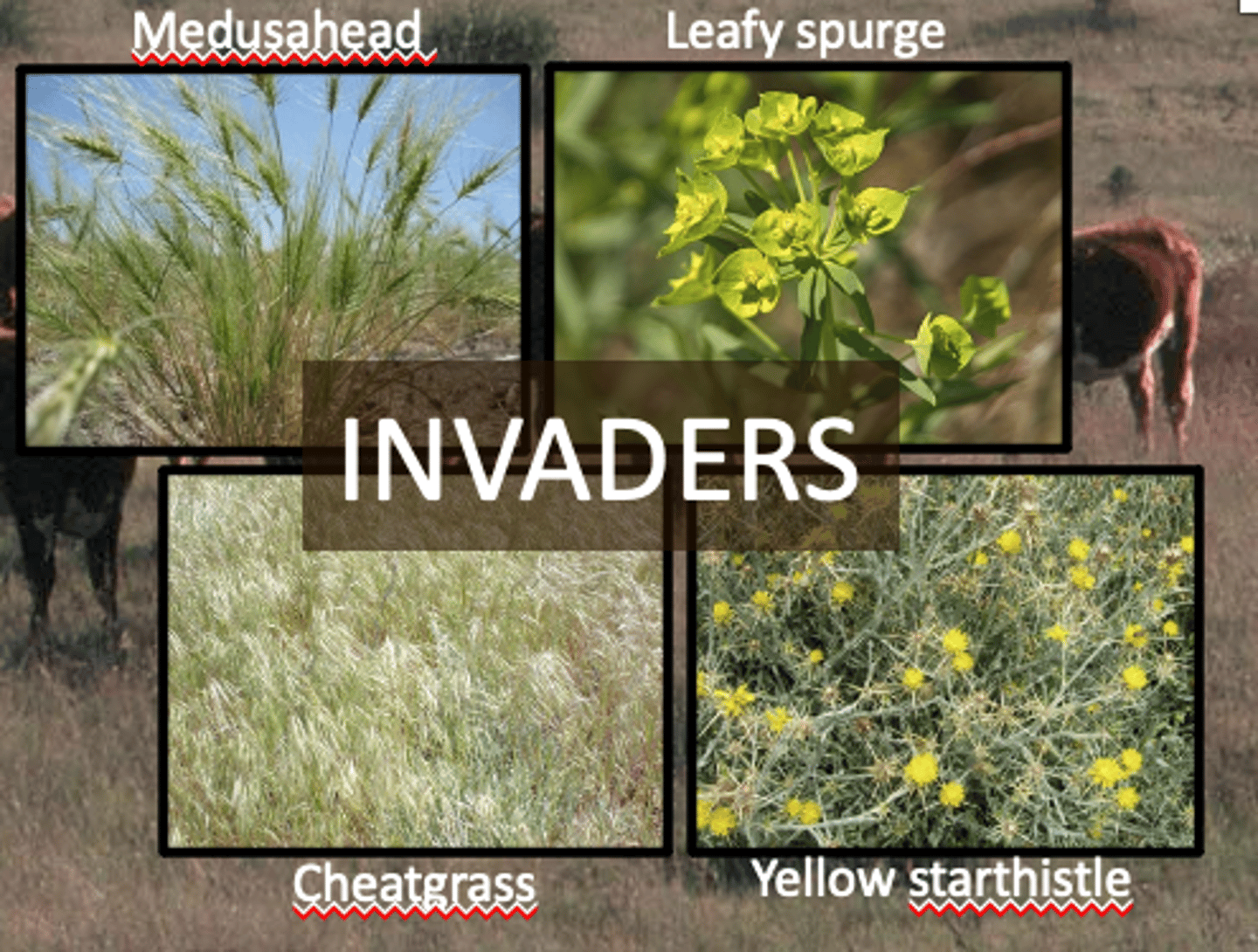
Desertification
Degradation of land, especially in semiarid areas, primarily because of human actions like excessive crop planting, animal grazing, and tree cutting.
Think of Dust Bowl
Drought and frequent fires effect on grasslands
causes plants to create extensive root systems for water uptake and recovery after disturbance
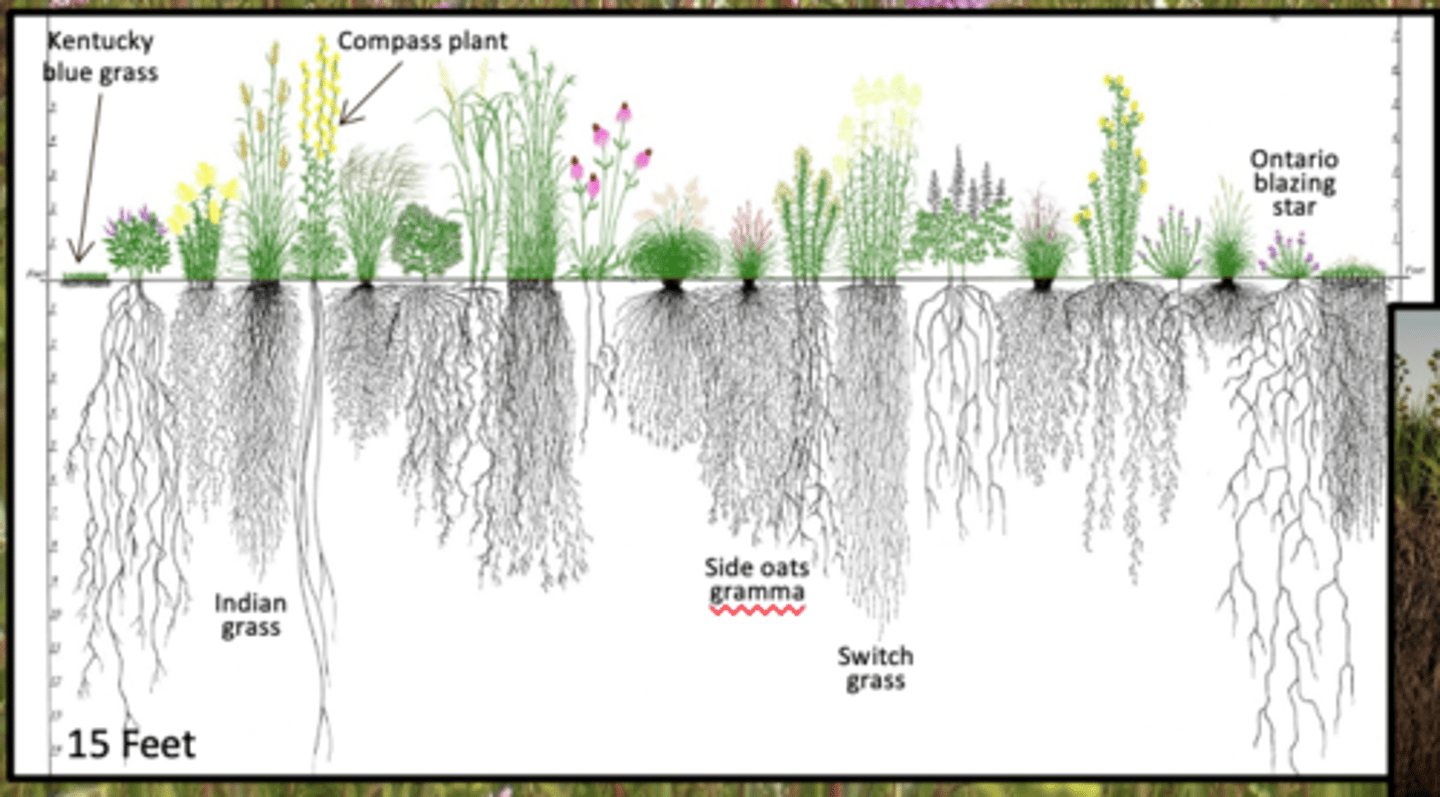
Migratory Bird Hunting Stamp Act (1934)
The act requires the purchase of a stamp by waterfowl hunters. Revenue generated is used to acquire important wetlands. Since its inception, the program has resulted in the protection of approximately 4.5 million acres (18,000 km2) of waterfowl habitat.
Duck Stamp
A stamp purchased by duck hunters, the proceeds from which are used to expand waterfowl populations. 98% of funds go to National Wildlife Refuge System for wetland purchases or easements
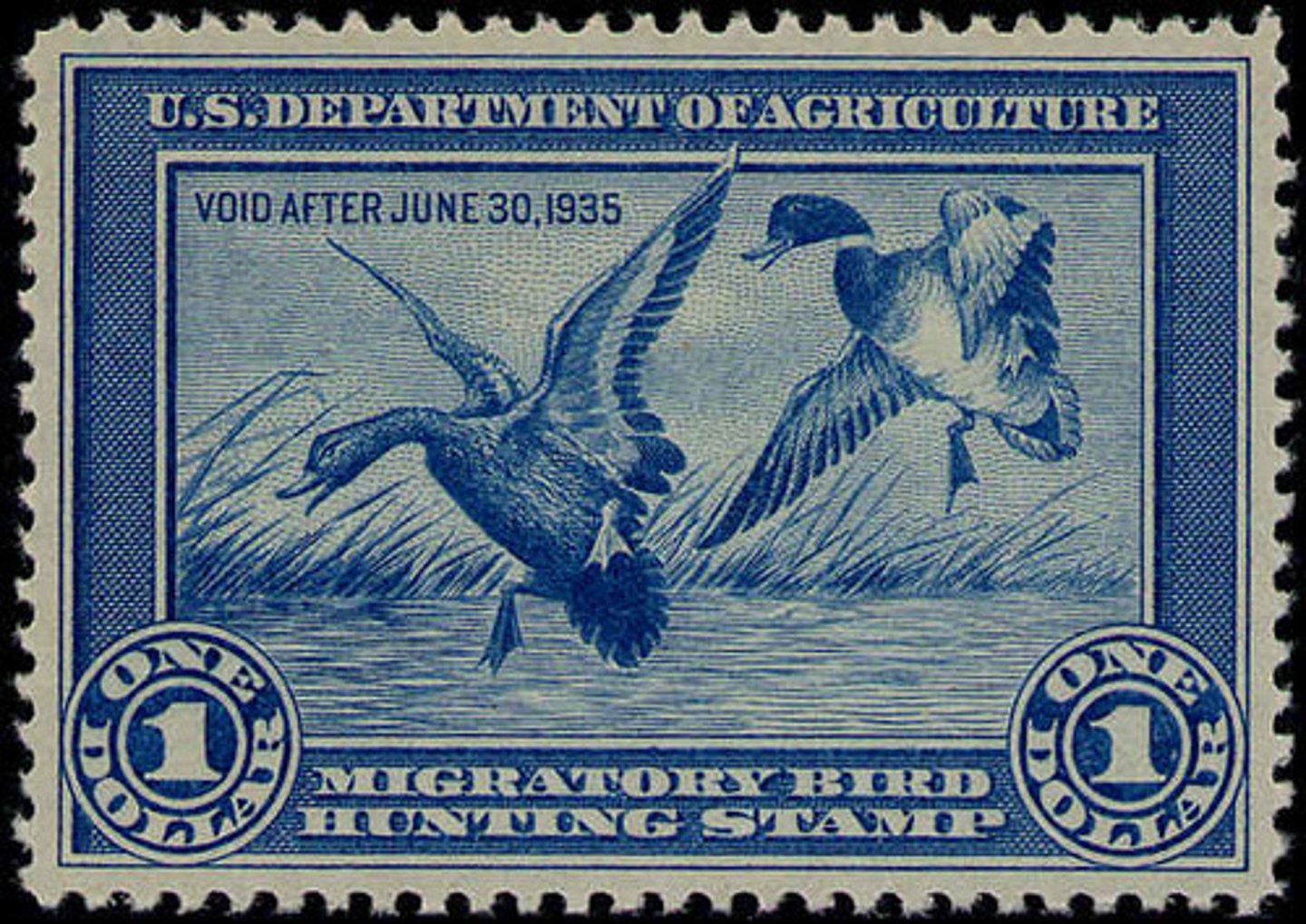
Ecotone
The transition from one type of habitat or ecosystem to another
Example:
- forest to a grassland
- deltas
- beaches
. Ephemeroptera (mayflies)
. Plecoptera (stoneflies)
. Trichoptera (caddisflies
What are the 3 main aquatic insects in northeastern and Midwestern streams? They are indicative of good habitat and water quality conditions
. Tubifex worms
. Black flies
What 2 aquatic insect species is an indication of water pollution?
Edge Effects
exacerbated by fragmentation, as these mostly interior-forest nesting birds are forced to build nests near patch edges, increasing the probability that cowbirds will be able to find and parasitize nests.
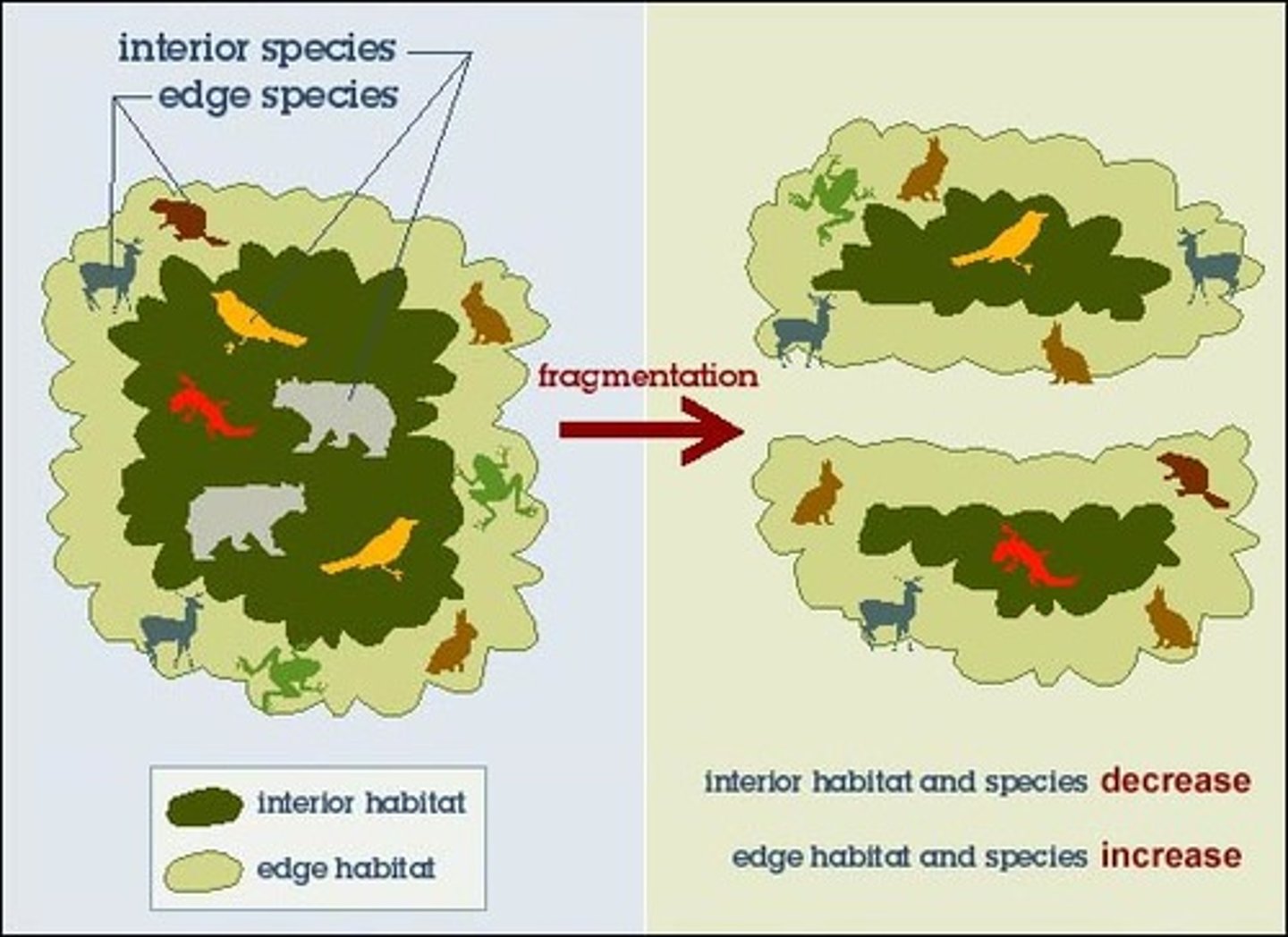
Fire suppression
the act of stopping a fire and preventing it from spreading to protect anthropogenic inhabitants. Extremely problematic for grassland ecosystems that rely on fire to continue their speices.
"Smokey the bear is wrong, he should've said "don't move into areas where fires occur" but he didn't, he tried to make sure nothing burns ever, which hurts the ecosystem" - Kelso
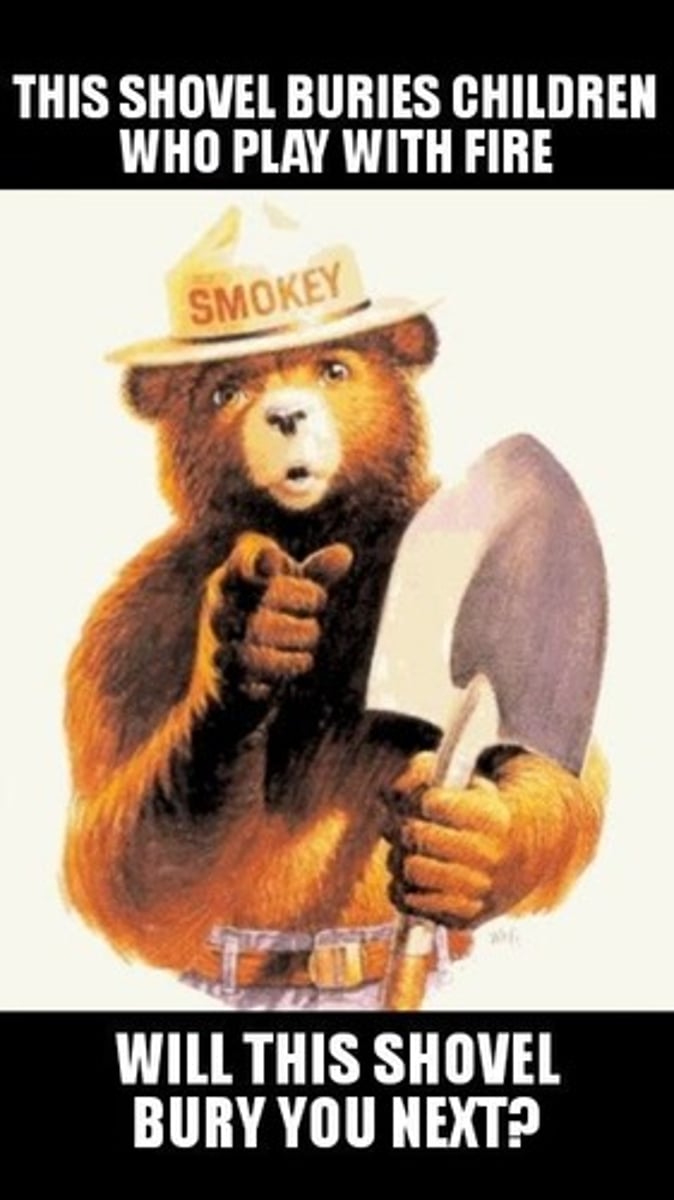
Flyway Council
(state and provincial members) recommend harvest levels to the USFWS based on duck population status (aerial surveys), harvest, and hunter participation data (questionnaires), when approved, sent to states to determine bag limits
Food Plots
a planted area set aside to act as a supplementary food source for wildlife
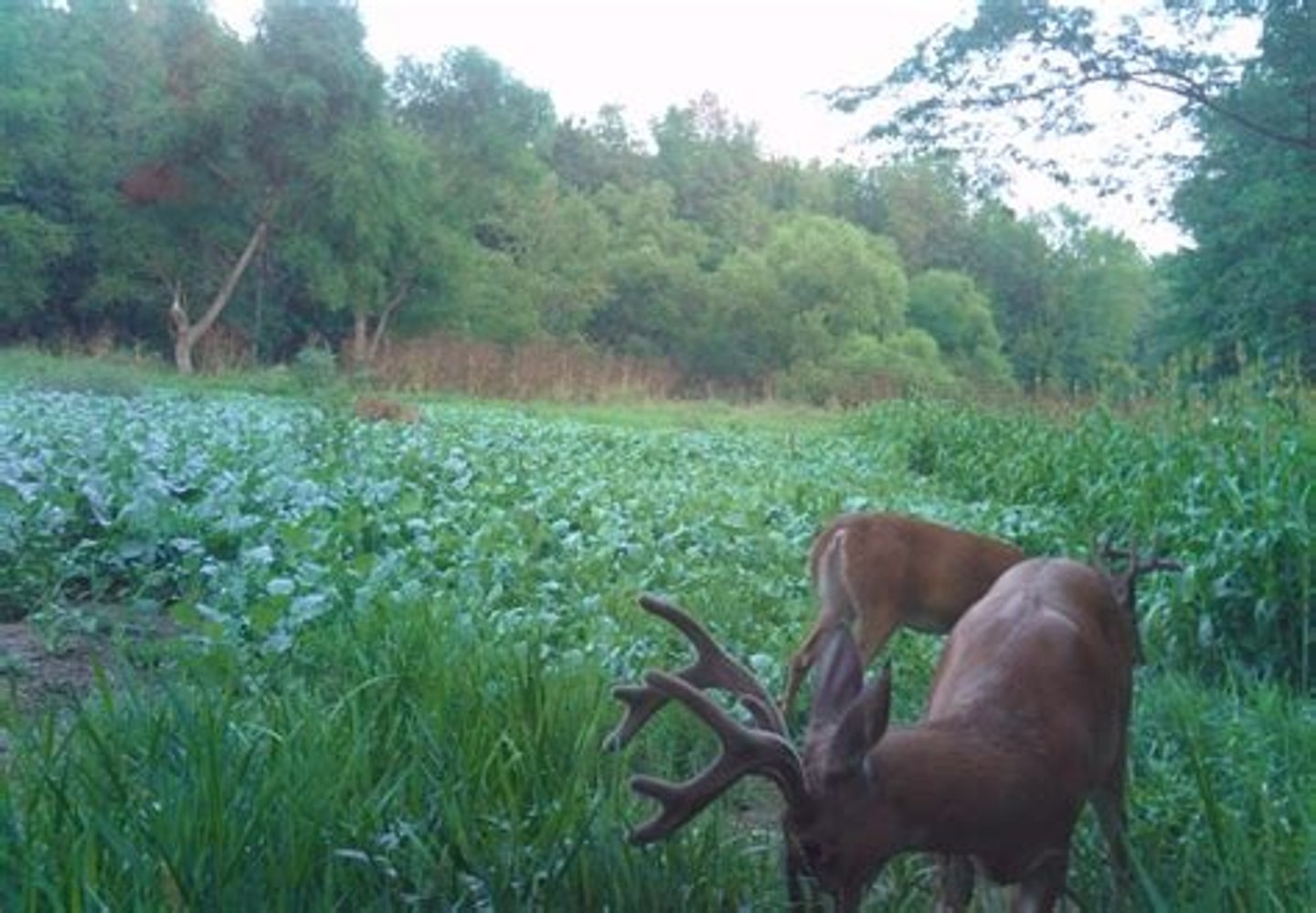
Forbs
flowering herbs, rushes, sedges, and shrubs
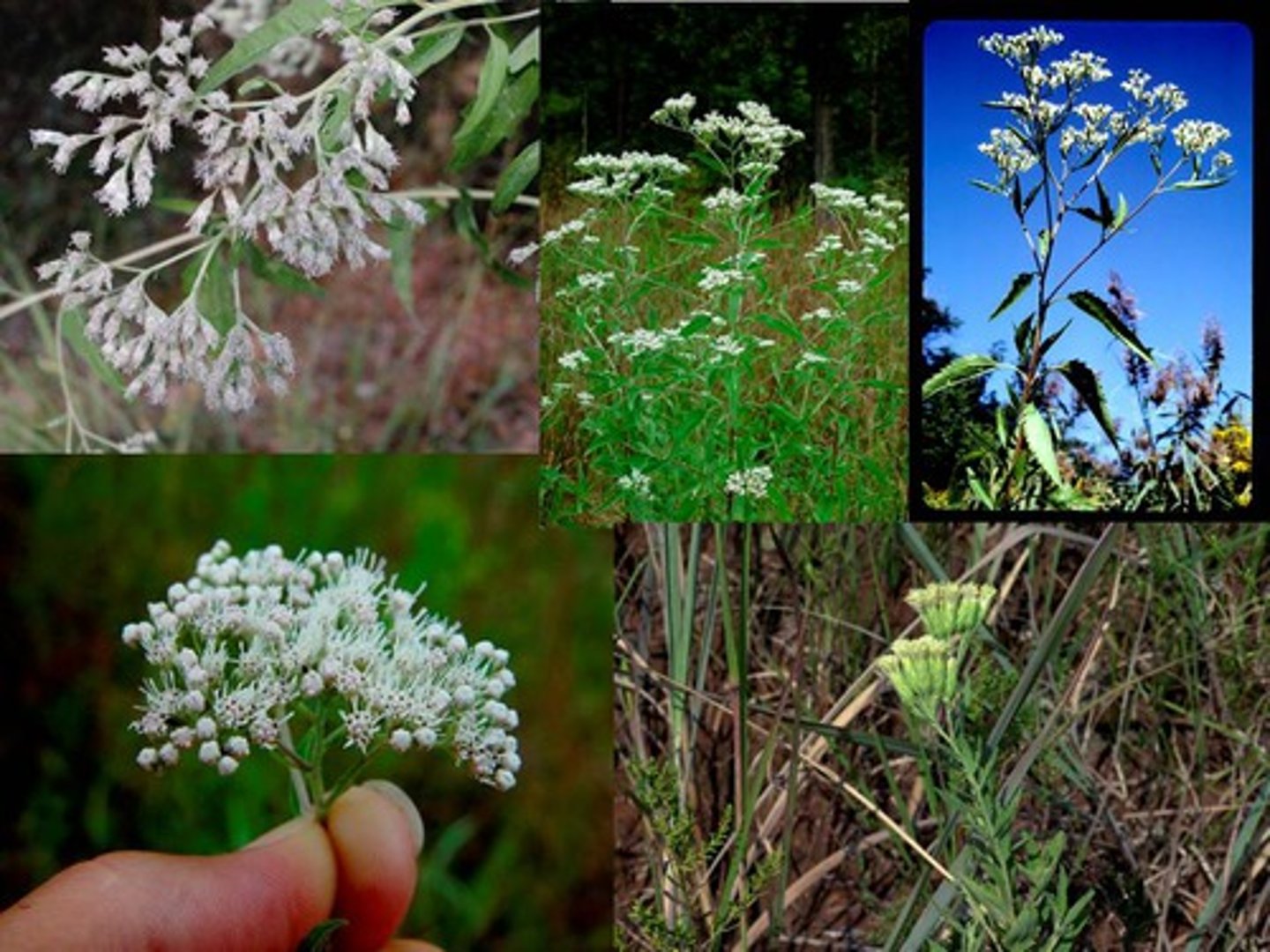
Foundation Species
Cause physical changes in environment that affect community structure. Grasslands cannot function without grazers and physical change.
- Prairie Dogs (burrow tunnels that aerate the soil)
- Bison (grazers and wallowing behaviors that create dents in the ground)
- Plains visachas (also digs burrows that aerate the soil and prevent erosion)
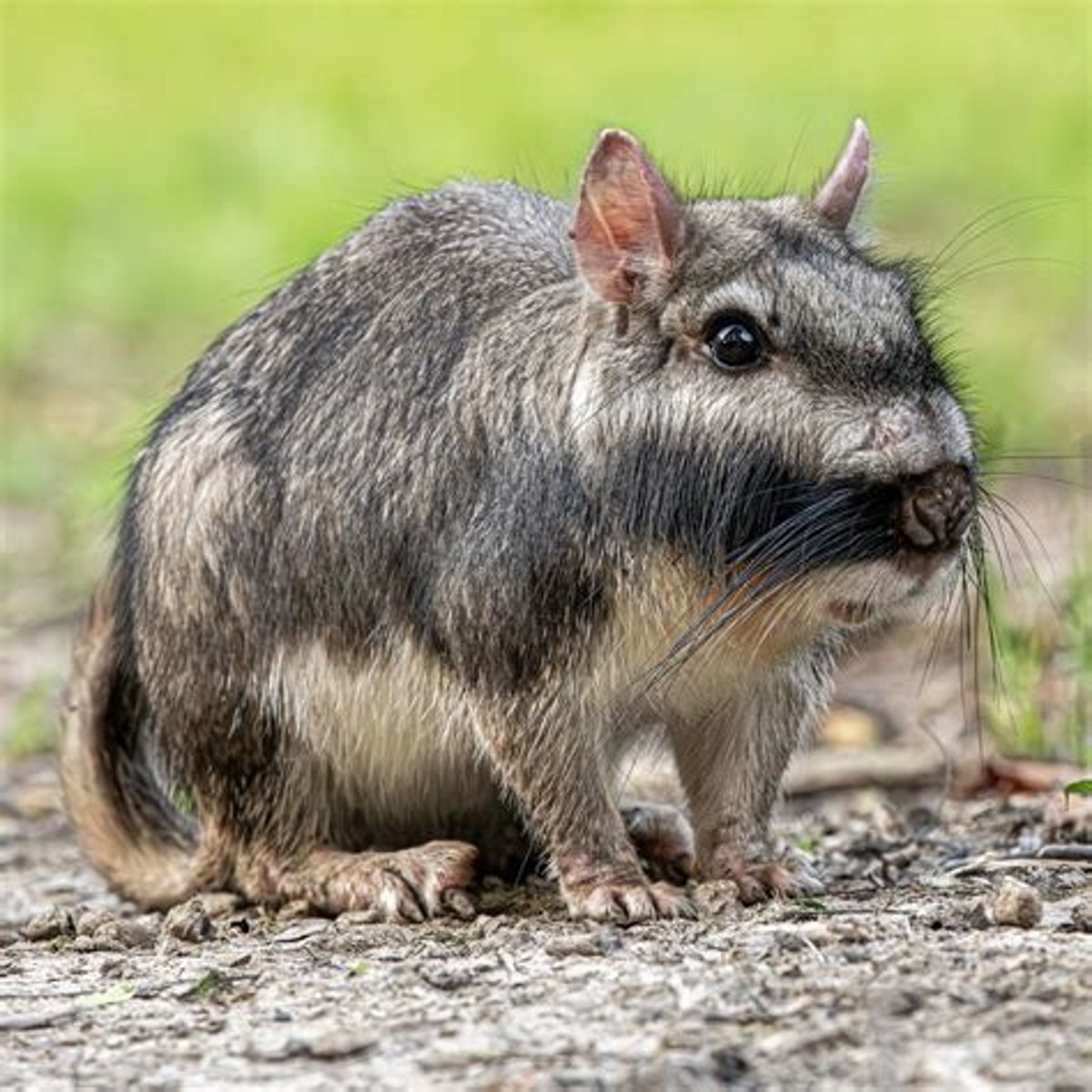
Fecundity
fertility in fishes
Garret Hardin
published "The Tragedy of the Commons" in the journal Science in 1968; argued that rational people will exploit shared resources
Grazing benefits
. stimulates plant growth
. promote biodiversity
. maintain healthy soil structure
. regulate the ecosystem
Greater Prairie Chicken
The Dakota Prairie Grasslands are extremely important to their survival. They have begun to nest in agricultural areas because of habitat fragmentation
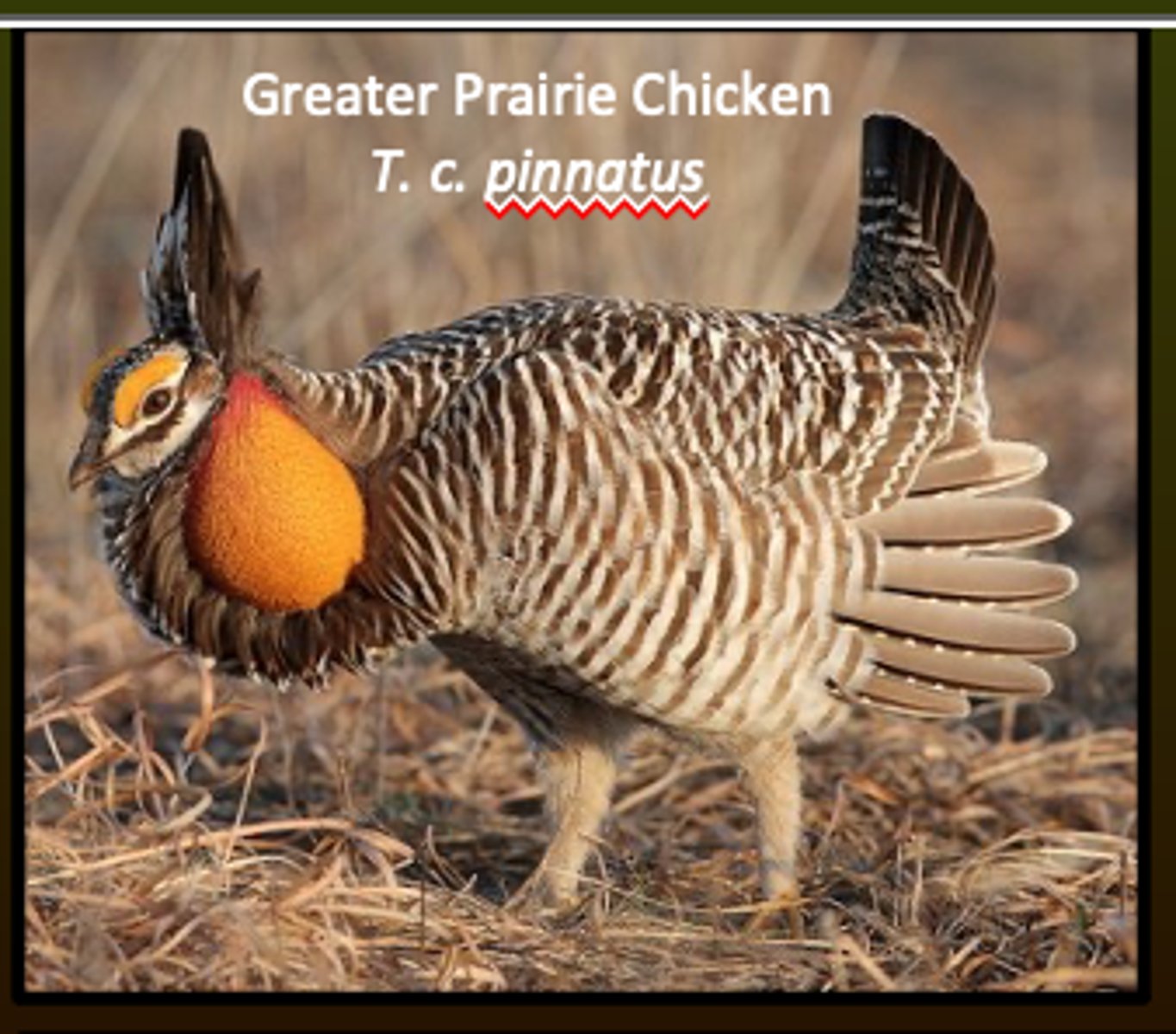
Halogenton
poisonous weed from Eurasia in early 20th century
- salt concentrated in tissues and leached back into soil, favors spread
- soluble oxalates also concentrated, <1 kg can cause grazer mortality, however, avoided if other forage available
- thrives in overgrazed habitats
- control by mechanical tillage/herbicides with reseeding
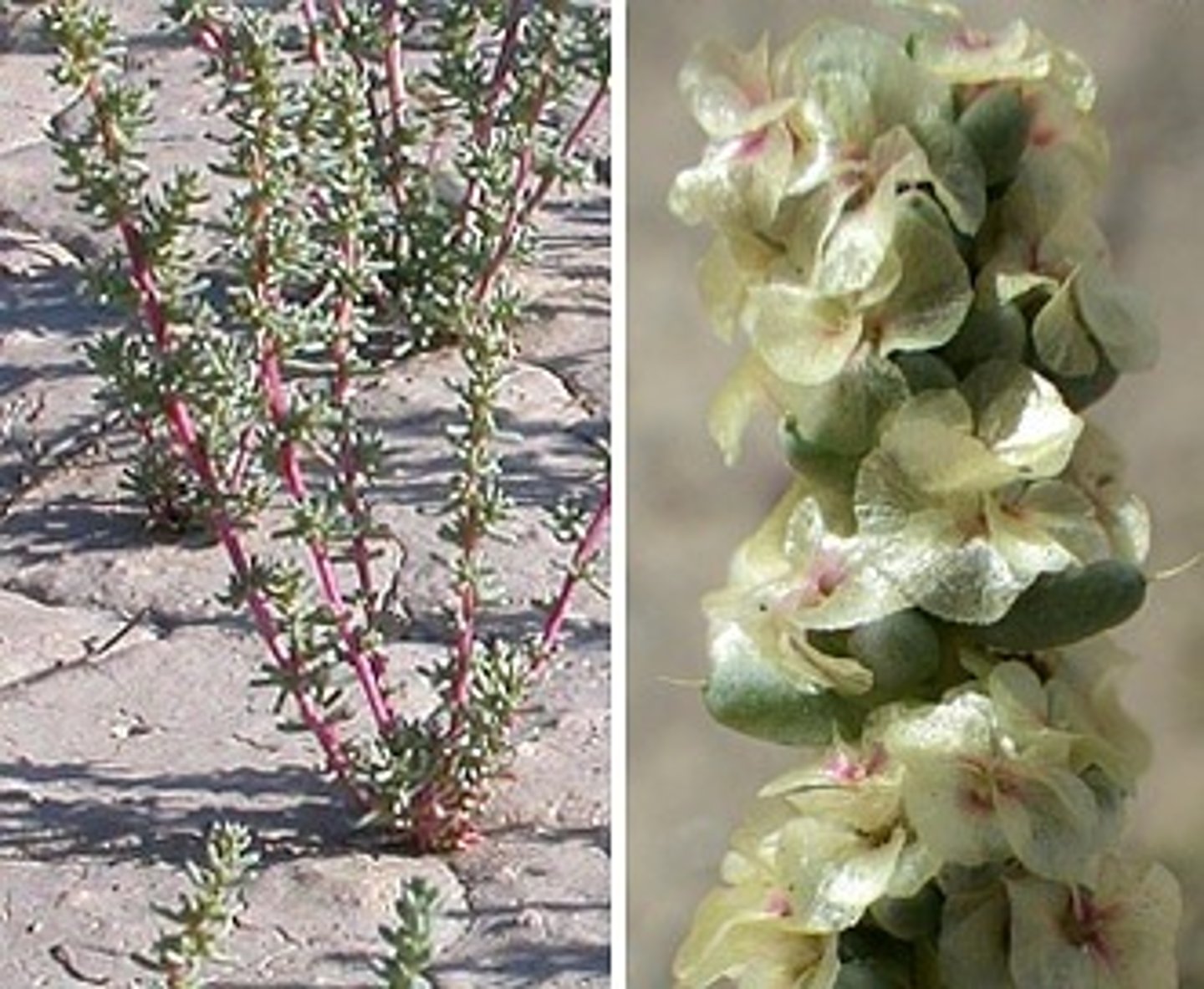
Homestead Act
1862 - Provided free land in the West to anyone willing to settle there, develop it, and "Improve it". Encouraged westward migration.
Indicator species
Species that serve as early warnings that a community or ecosystem is being degraded.
- prairie dogs
- big bluestem (see photo)
-little bluestem
- switch grass
- butterfly milkweed
- grasshopper sparrows
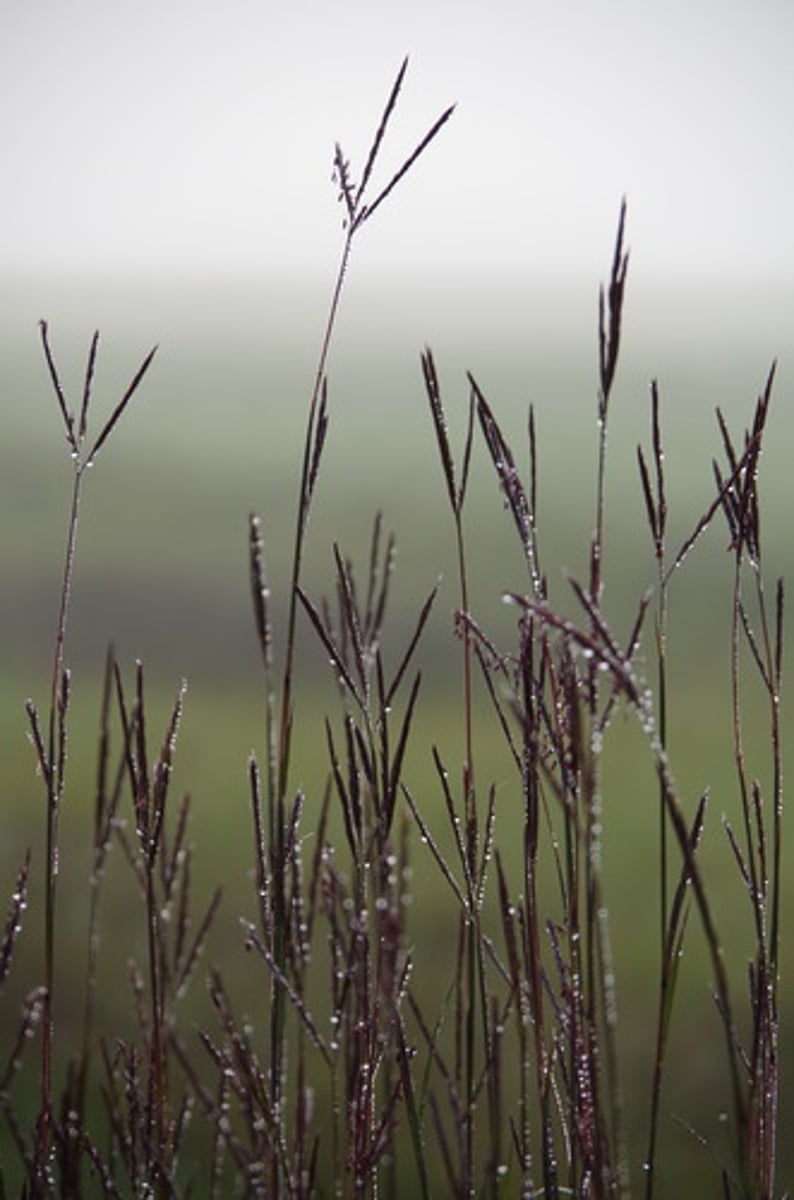
Joint Ventures
federal, state, local, landowner, and NGO (DU) partnerships aimed at conserving wetlands; 13.2 million acres conserved, funded by North American Wetlands Conservation Act (1989), 1:1 match required
Keystone Species
A species that influences the survival of many other species in an ecosystem
- Bison
- Prairie Dogs
Kruger National Park
. South Africa's largest Nat'l Park established in 1898, 1 mill visitors per year,
. resident Elephant population; 8,500 in 1995 (moratorium on culling) to 12,930 in 2008; historically, 500-1,800 killed annually
. concerns about vegetation impacts on other species, human conflicts
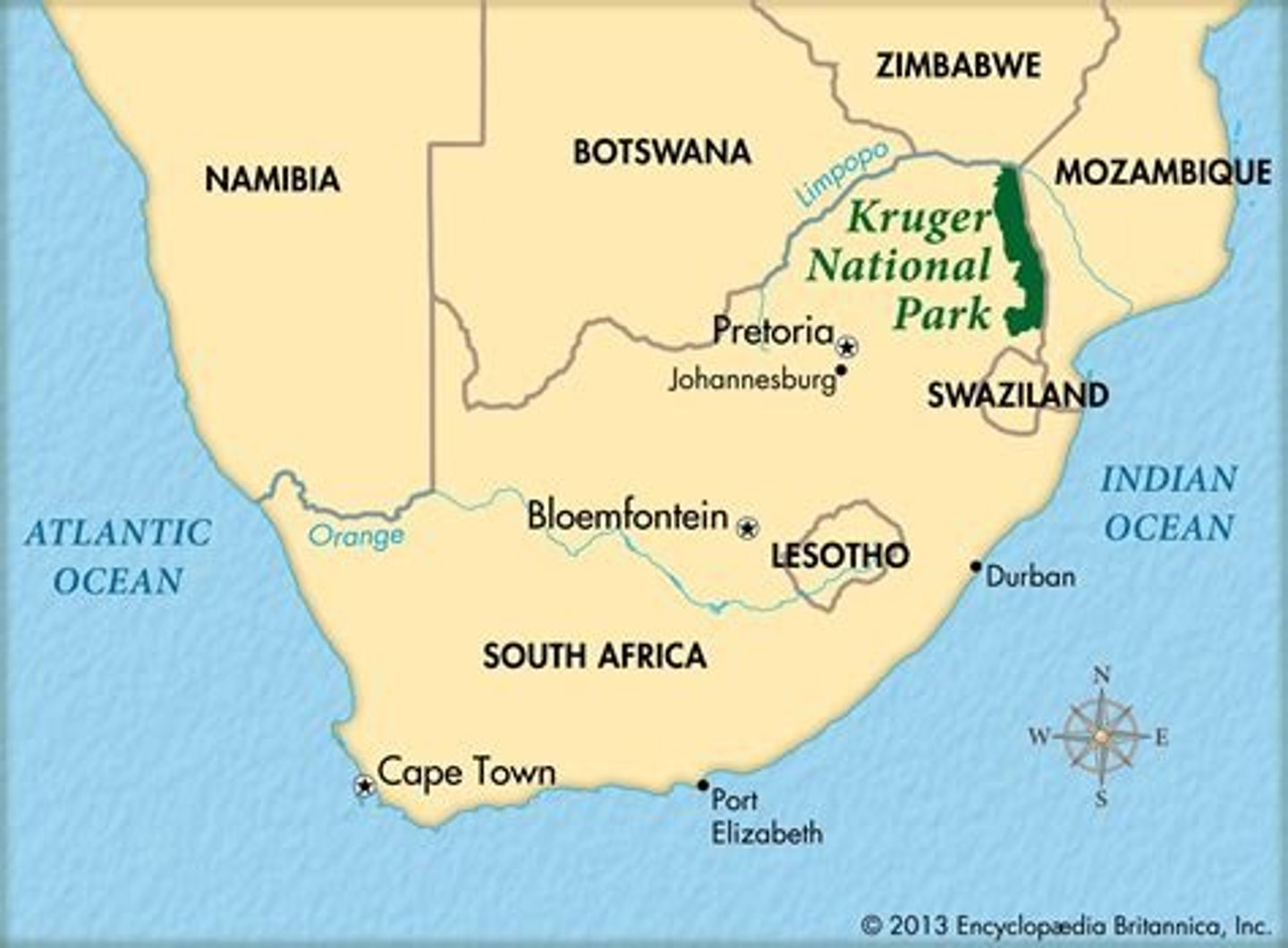
Leafy Spurge
toxic perennial weed from Eurasia, early 19th century introduction
- seeds explode from capsules that are viable for 8 years
- overpowers native vegetation
- produced allopathic chemicals
- can be poisonous to cattle and horses, but their good at avoiding it. Sheep and goats apparently can be trained to forage on it???
- biocontrol is being used to control it
. flea beetles Aphthona flava
.A. nigriscutis,
. A. lacertosa
. Red-headed stem borer Oberea erythrocephala

Life History
all of the characteristics that have evolved in that organism to maximize its chances of leaving viable offspring to reproduce in future generations (its evolutionary fitness)
Life histories
Little Spotted Kiwi's are victims of their ___________ _____________.
Evolutionary Fitness
success in passing genes to the next generation
Longleaf Pine Savannah
. provides a unique and diverse habitat for a wide variety of plant and animal species,
- fire climax community
- drought resilient
- provides habitats for endangered species such as the red-cockaded woodpecker
- open canopy allows development of a grasses and herbaceous plants in the understory
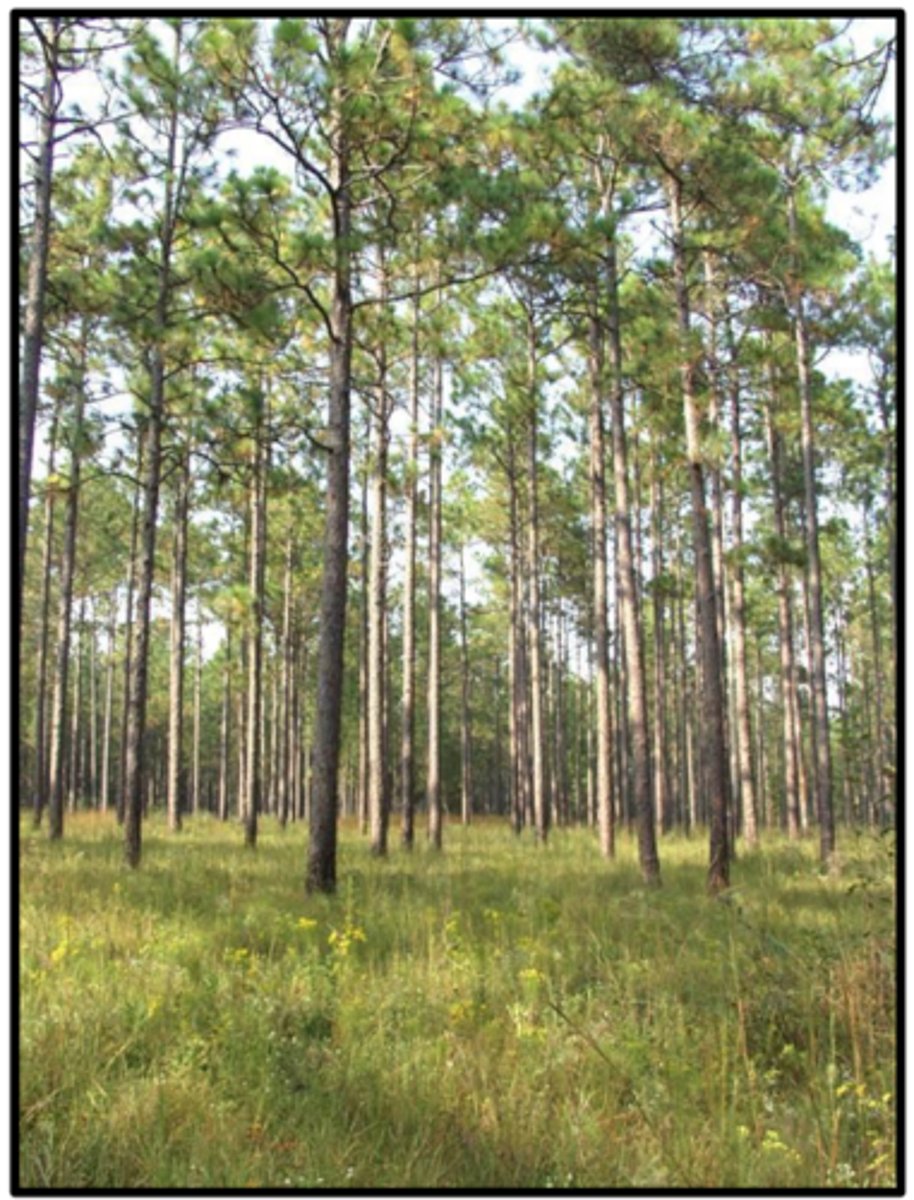
Majete Wildlife Reserve
Malawi
. started in 2003
. Cooperatively managed by African Parks and the Malawi Department of National Parks and Wildlife
. Positive economic impact on surrounding communities
- employment (125 people)
- sustainable resource extraction
- scholarships for student support in secondary schools and universities
- tourism lodge
- three schools built
- libraries
- health clinics
- malaria control program for adjacent communities - focus on sustainable production, value of living resources
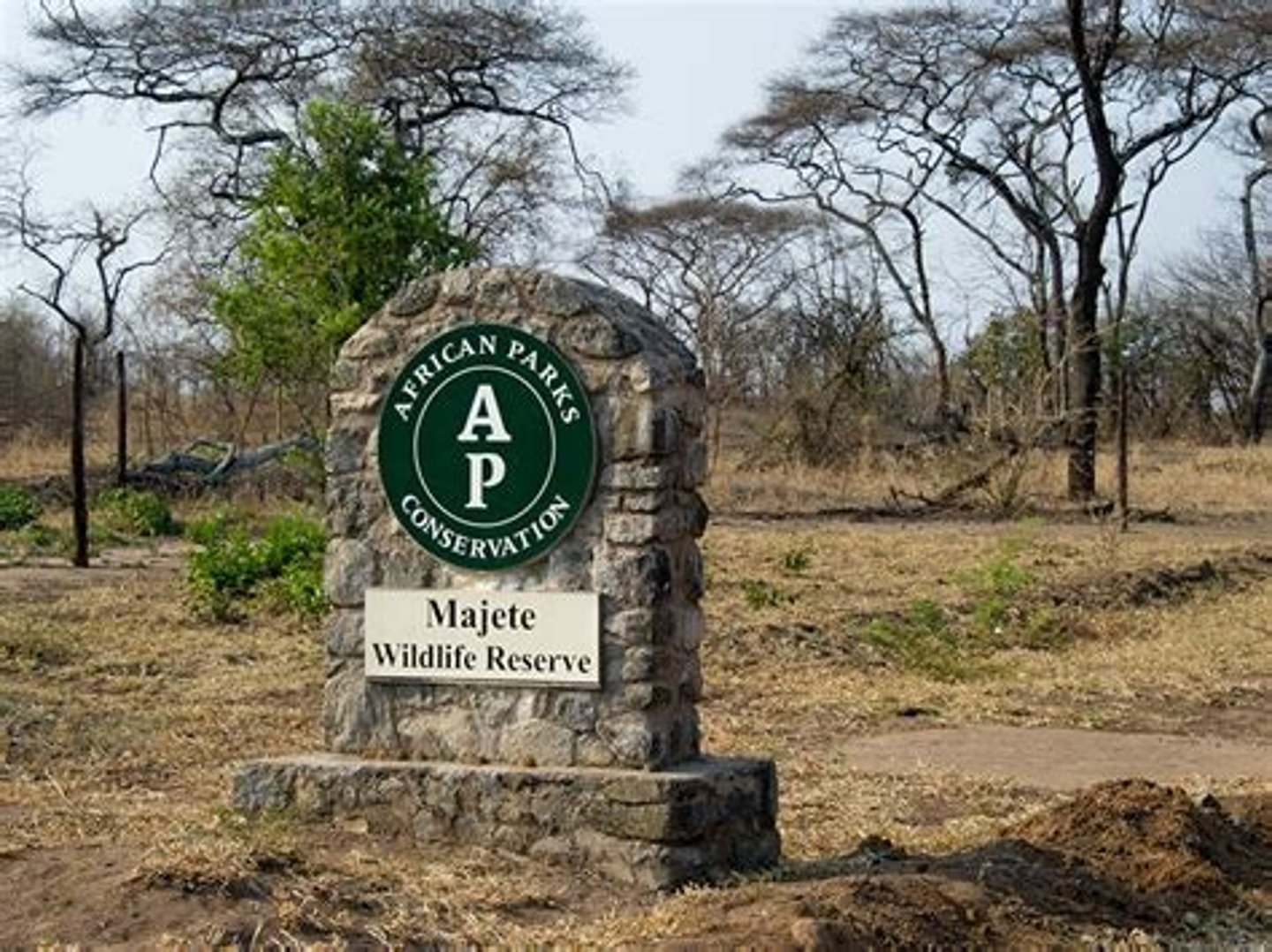
Mesocarnivore
are becoming a problematic predator in edge habitats because they are killing more than is reproducing
Metabolic Reserve
the unexposed part of a grass needed for the plant's survival, which can adapt based on environmental conditions
Migratory Bird Hunting Stamp
duck stamps provided money for wetland habitat conservation
Multiple Use
Use of an ecosystem such as a forest for a variety of purposes such as timber harvesting, wildlife habitat, watershed protection, and recreation. Required on all federal land.
. Little Missouri
. Buffalo Gap
. Comanche
What are the 3 largest National Grasslands of the United States?
North American Waterfowl Management Plan
an international plan to conserve waterfowl and migratory birds in North America. It was established in 1986 by Canada and the United States, and expanded to include Mexico in 1994.
North American Wetland Conservation Act
U.S. and Canada signed in 1986, Mexico 1994
First priority - wetland restoration and protection
- Joint Ventures
- Federal Duck Stamp
Non-obligate
female Bank Swallows and African Weavers that lay eggs in in their own nests as well as nests of conspecifics
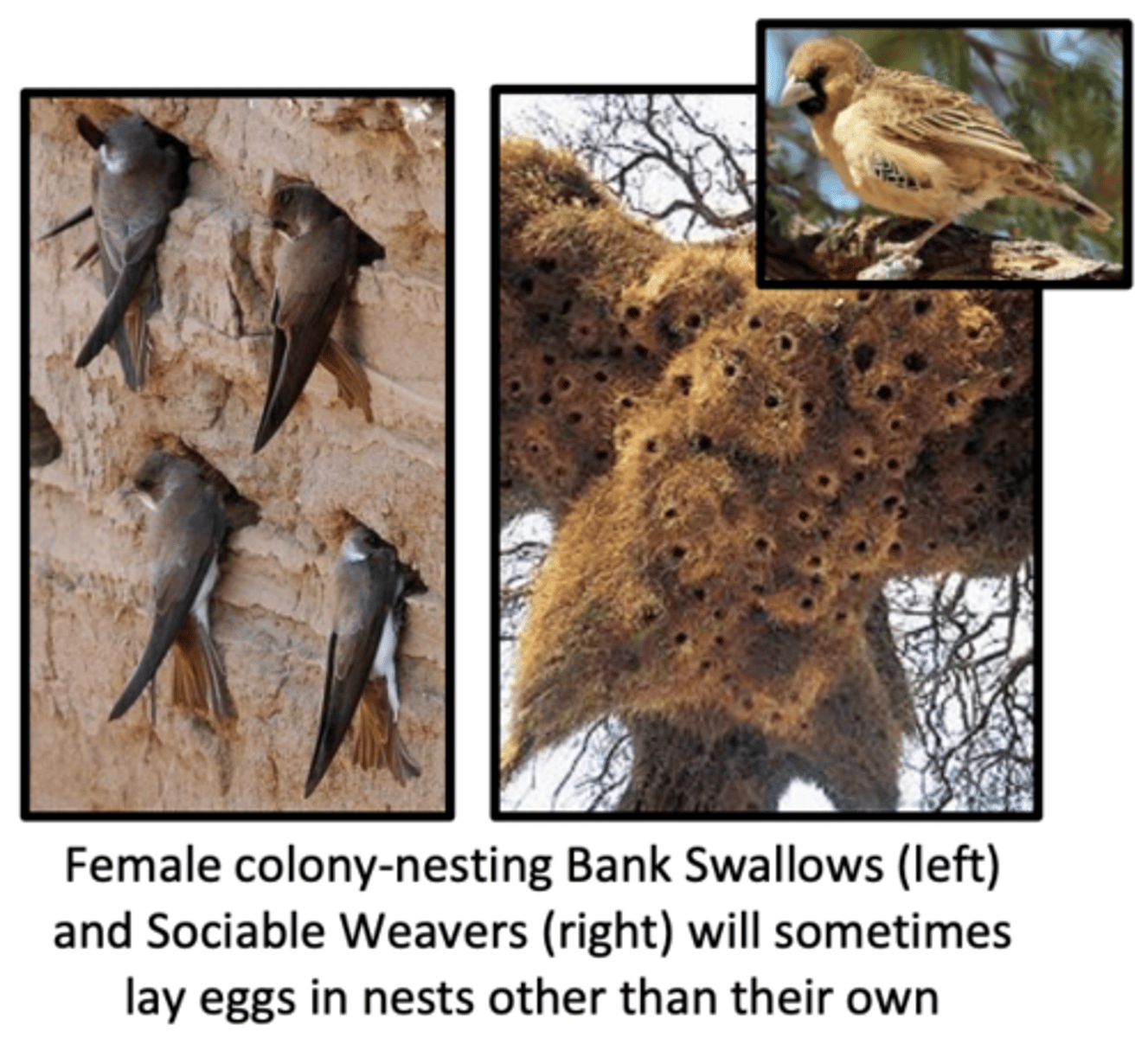
Obligate
Brown-headed Cowbirds and Common Cuckoos, which have lost the ability to build nests and only lay eggs in nests of other species.
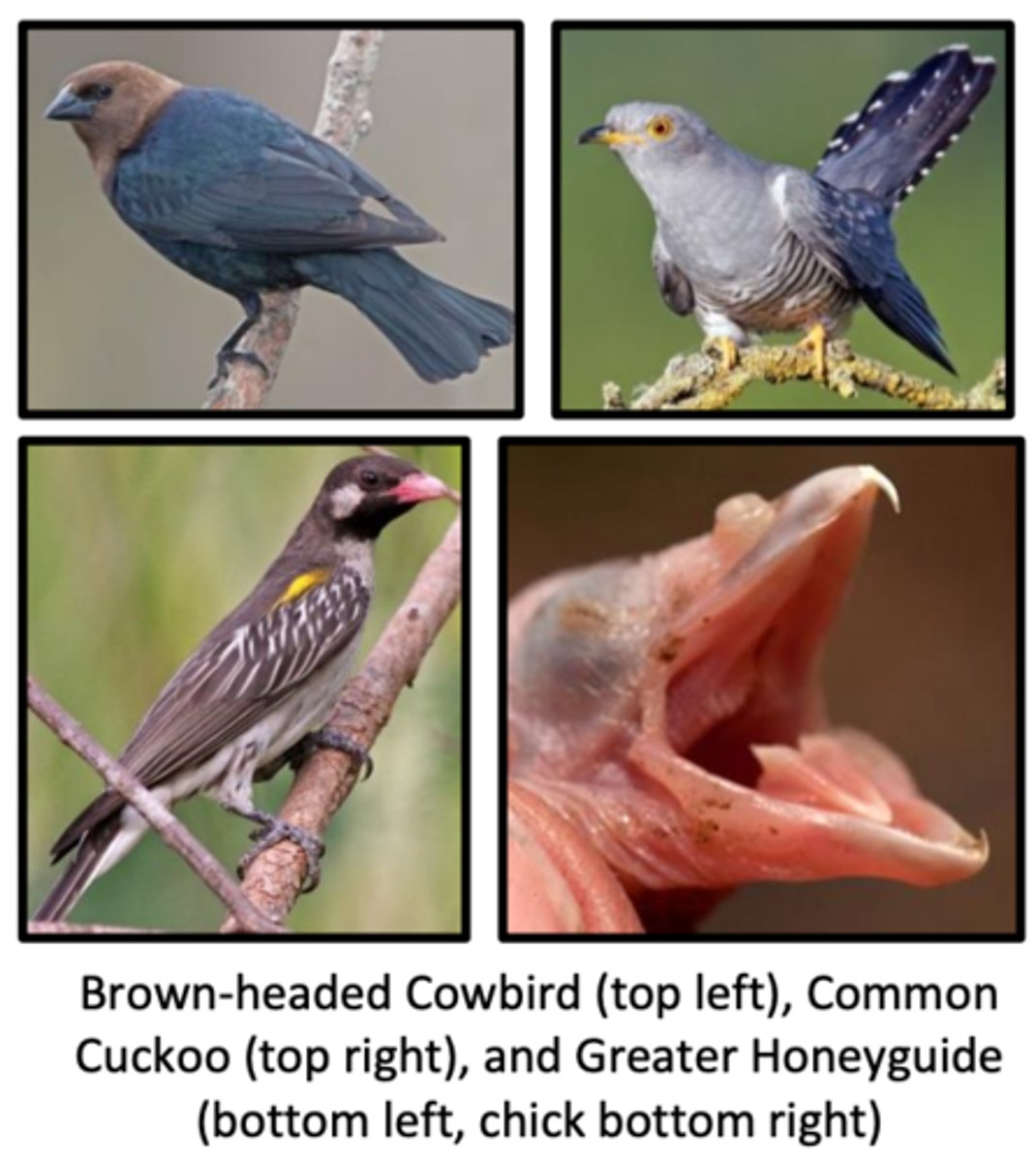
Overgrazing
Destruction of vegetation caused by too many grazing livestock consuming the plants in a particular area so they cannot recover
Ocean Sunfish
Large size, long lifespan, minimal mobility, simple diet, and huge fecundity would characterize the Ocean Sunfish life history
- lays 300,000,000 eggs A YEAR!
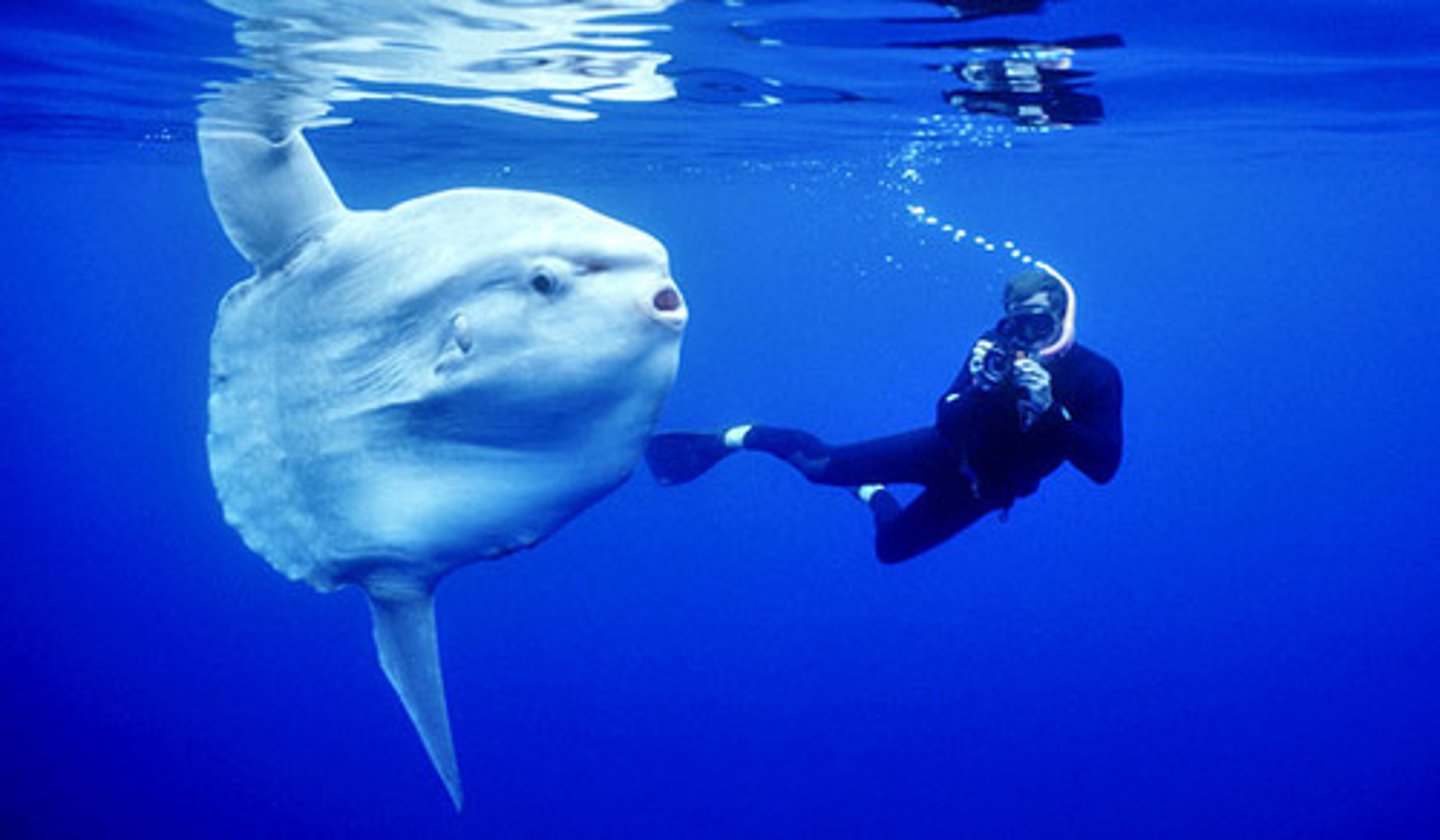
Prairie Pothole Region
- formed during last glacial retreat
- abundance of ponds contributes to high nest success and low hen mortality (predation)
- important breeding habitat for Mallard, Northern Pintail, Gadwall, Blue-winged Teal, Shoveler, Canvasback, and Redhead ducks
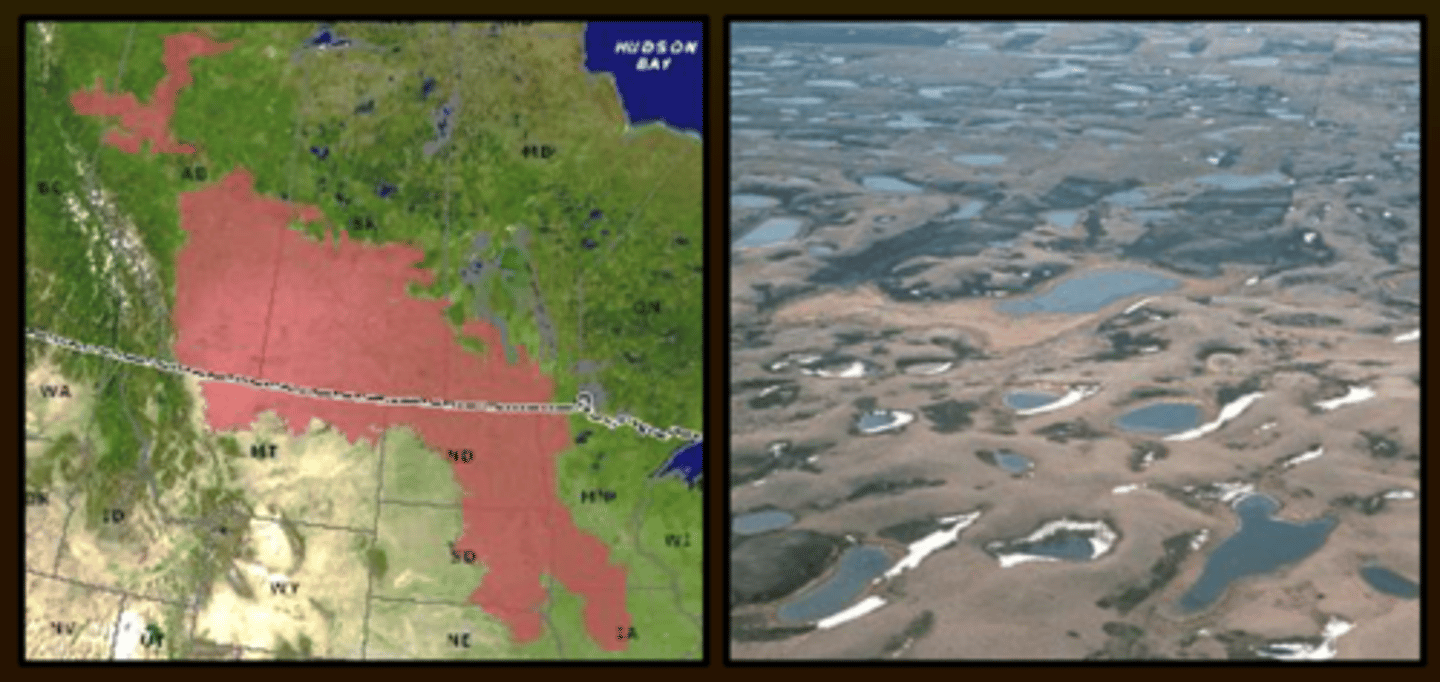
Prescribed Burn
A fire deliberately set under controlled conditions in order to reduce the accumulation of dead biomass on a forest floor
Preservation vs. Conservation
. Preservation states that we should protect our environment in a pristine, unaltered state.
. Conservation says we should put natural resources to use but that we have a responsibility to manage them wisely.
PZP
Porcine Zona Pellucida
an injection of immunocontraceptives used on elephants to prevent further fertilization
Rain shadow
a region with dry conditions found on the leeward side of a mountain range as a result of humid winds from the ocean causing precipitation on the windward side
- usually seen in short grass prairies
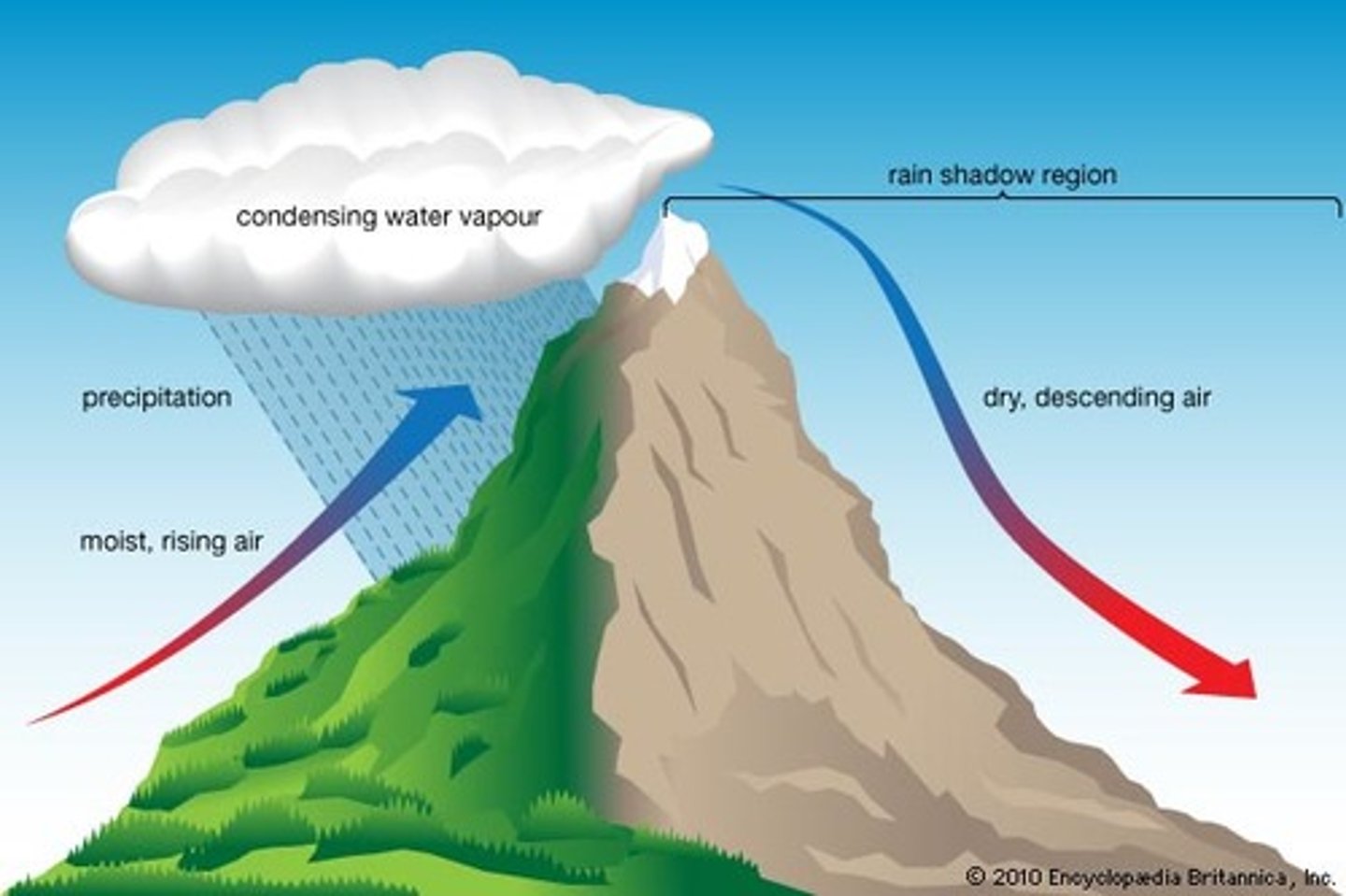
Rotational Grazing
cattle are confined by portable fencing to one area for a short time and then moved to a new location
- kind of similar to the 3 fields system in Europe
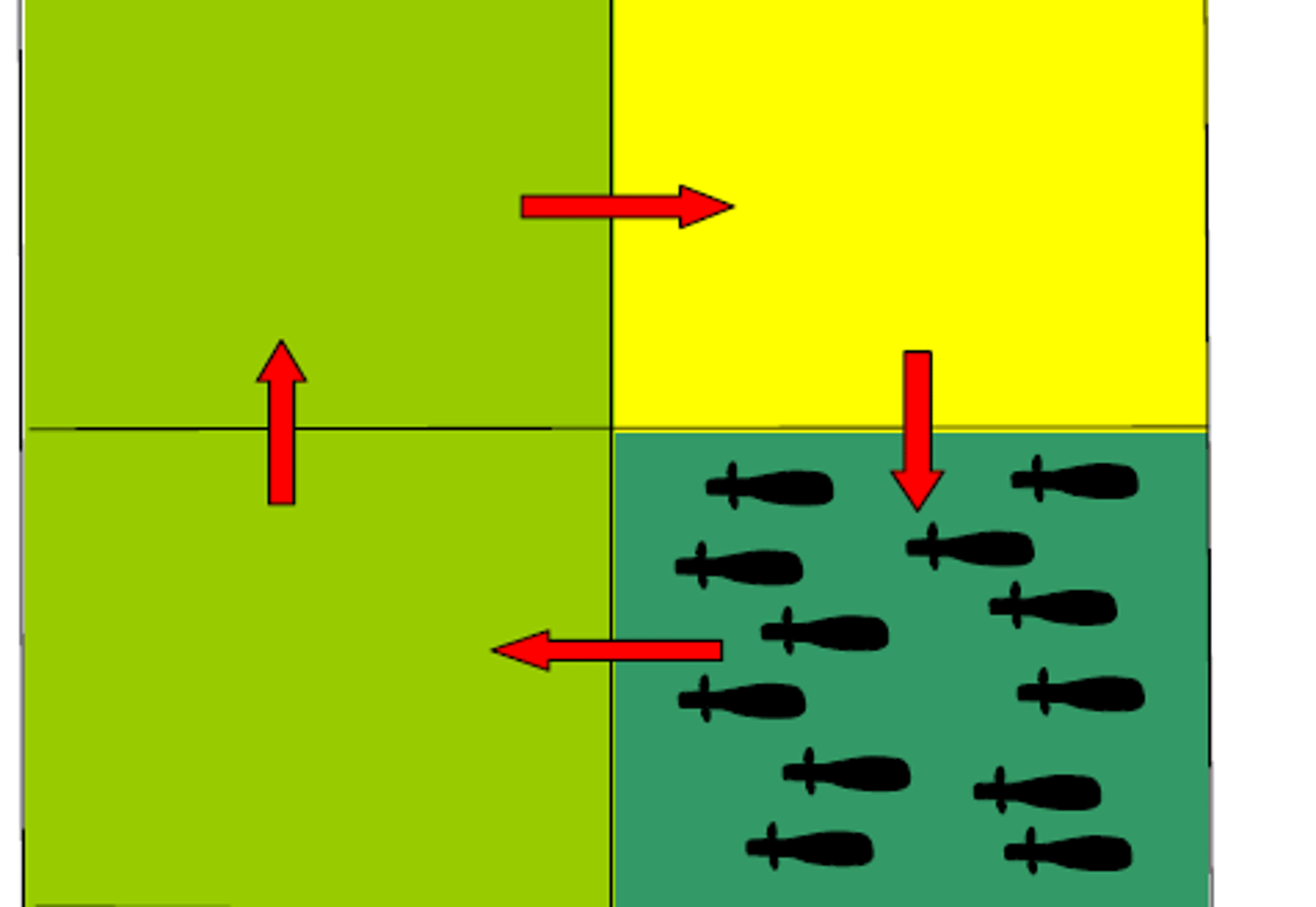
Secondary Metabolites
. organic compounds that are not directly involved in the normal growth, development, or reproduction of an organism
. Chemicals can be leached or secreted from living plants, or may be liberated during decomposition after the plant dies.
Short Grass Prairie
increasing precipitation and grass height towards the Mississippi River
Tall Grass Prairies
characterized by bluestems (Andropogon spp.), growth to 2.5 m
- most converted to cropland (only 4% remaining)
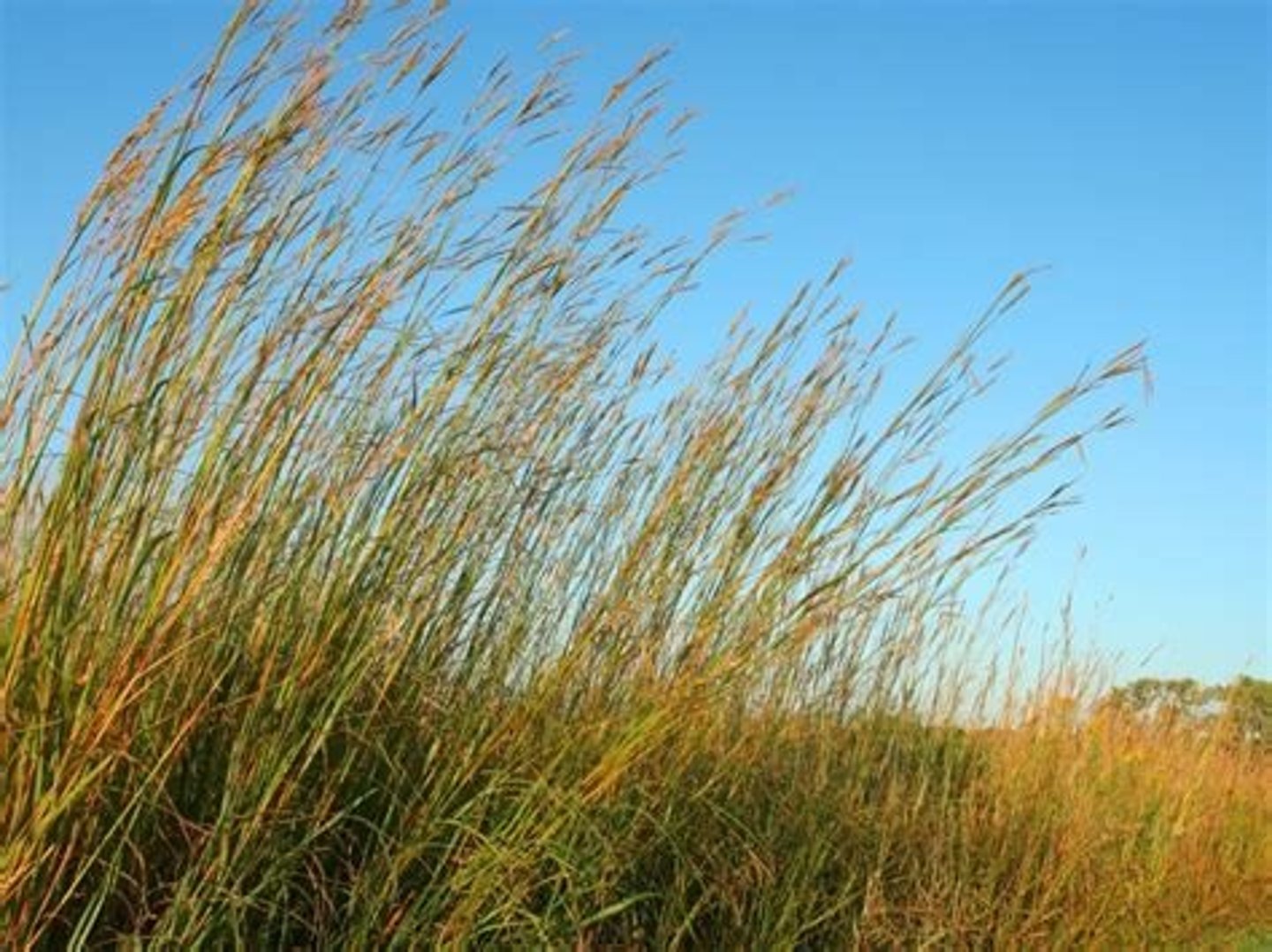
Toson Khulstai Nature Reserve
. Mongolia
. 1.2 million acres of steppe habitat
. unique fauna, but functional groups very similar to N. American fauna
. historic herbivore grazing maintained biodiversity and system function
. TNC management focused on restoration/mimicking of herbivory, "Development by Design"
Tragedy of the Commons
situation in which people acting individually and in their own interest use up commonly available but limited resources, creating disaster for the entire community
Umbrella Species
species whose being protected under the Endangered Species Act leads to the preservation of its habitat and all of the other organisms in its community that share the same grassland ecosystem
- Grizzly Bears
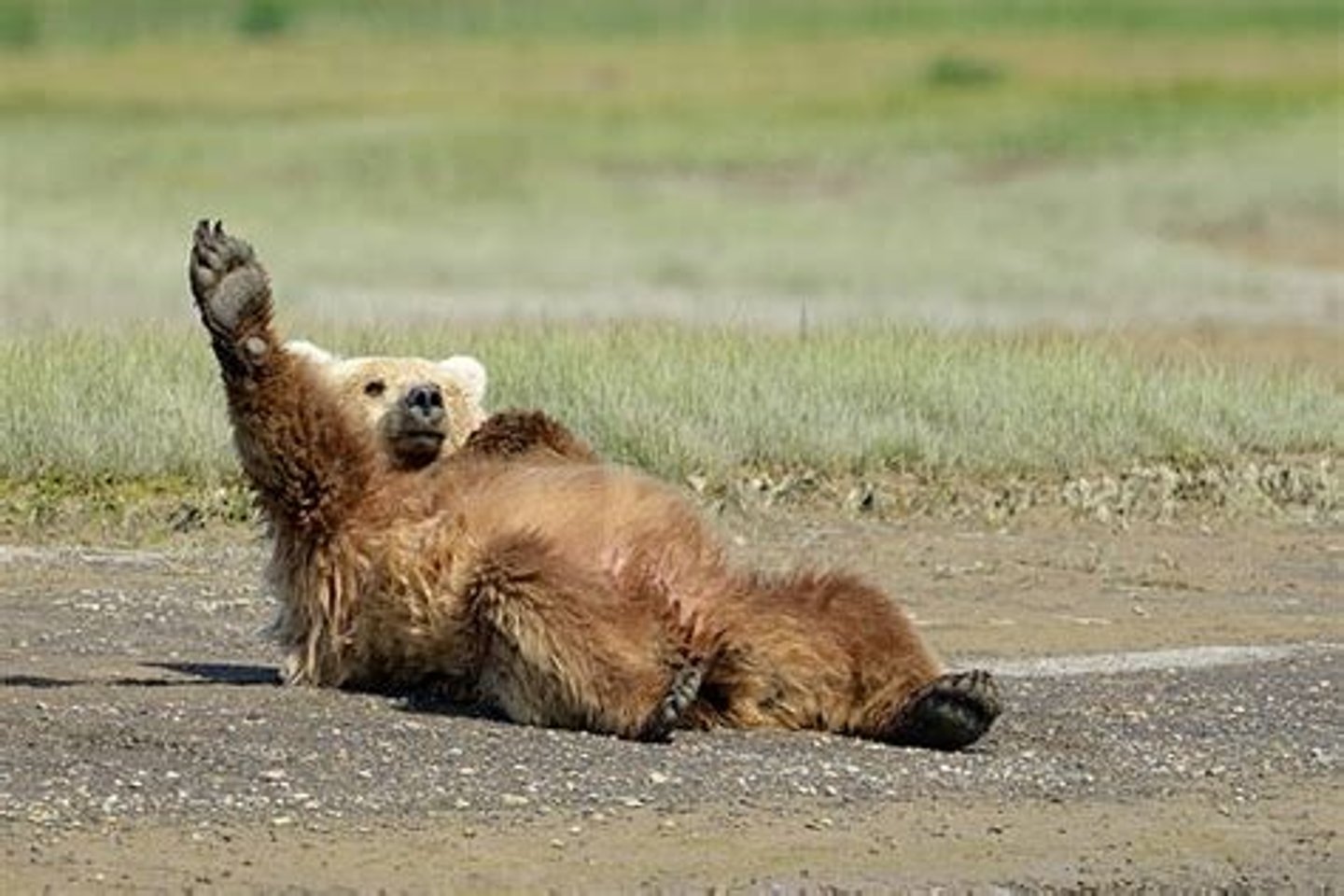
Waterfowl in Grasslands
. Northern grasslands in North America play a critical role in waterfowl production
. four major flyways between breeding grounds in the north and wintering grounds in the south
. northern prairie wetlands provide critical nesting habitat for millions of waterfowl each year, e.g., the Prairie Pothole region
